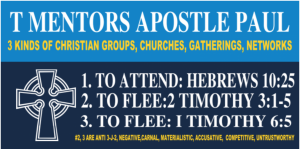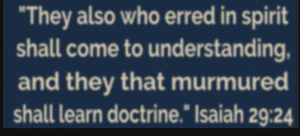
This is not AI AND I, this is TD’S MERCIFUL MINISTRY WORD
APOSTLE D’ARCY SUBMITS THAT WARNING WORD TO MALACHI CONFIRMS A SIGNIFICANT EVEN OPULENT MINISTRY THREAD:
Tie over from Malachi Bible Study and Outline
MALACHI CLOSES. THE PRIESTS AND THE LEADERS AND THE ENTIRE ARE SIFTED. But after that long, lonely hostile period, GOOD NEWS COMES in the Book of Matthew, with the Gospel, Jesus, following by power of God, healing, eternal salvation, deliverance and the power of God and personal pray and Acts ministry and community. Yet the temple system still reflects the ISAIAH, OBADIAH leader fruit of Before, yet is always a Remnant (John the Baptists priest father) Still it looks more and more like this elite, dogmatic and accustomed, stylin’ bright yet dark… present time in the ministry and in many of God’s Temperal Man, Woman, Leader Child…the Demas, toying little and big houses. Houses.
All this and beneath appears to be highly significant to hearts of God’s Called Christian People, even now, in this American Country
Submitted as a Selah,
Dr. Taveau D’Arcy, apostolic EORR CROSS BODY UNITY now move

WORD TO GOD’S LEADERS :GOD’S LOST LEADERSHIP
ISAIAH 1-10 AND OBADIAH Hireling Overview, First Church Continuation Overview
(C)2024 Taveau D’Arcy All copyrights reserved under international copyright laws
This this was first opened up to me by the Lord down in DFW about certain very high quality, mainly mega ministry with it’s abundance of vast True Similar Western Popular Culture style of Devout Followers.( Many Influential Subcultures)
Note this ties in with my MALACHI OUT LINE…End of the OLD EPIC ERA
THE COLLECTIVE CONTROLLING LEADERSHIP IN THE NATION OF ISAIAH
Isaiah 1-10: A National Collective Word to God’s Hebrew Nation of Leaders
Isaiah 10:27 (KJV): “And it shall come to pass in that day, that his burden shall be taken away from off thy shoulder, and his yoke from off thy neck, and the yoke shall be destroyed because of the anointing.”
Reminder: Prophet Isaiah 1-10 was a warning to God’s leaders of His chosen quality people.
Chapters 1-3 noted the sins of the leaders of His Accumulated Nation: little g gods, false religion, and vanity (even the women were mentioned). Perhaps that combined to make the majority of God’s leaders, prophets, patriarchs, and family tribal heads “accepting, dull, blind, imperceptive, and many fallen.”
By the time the word addresses this national issue, it is described in Chapter 5:20, where God pronounces what appears to be a national warning over His people: “Woe, you call good evil and evil good” (which resembles the current situation!).
Lastly, by the time we read Chapter 10:27, we find a paraphrase of a very famous, oft-quoted verse (this is quoted and known mostly by tongue-talking ministers): “the yoke-breaking anointing,” when viewed in its historical context.
By Chapter 10:27, this is our reason for stating Isaiah 10:27 (KJV):
“And it shall come to pass in that day, that his burden shall be taken away from off thy shoulder, and his yoke from off thy neck, and the yoke shall be destroyed because of the anointing.”
This is the history of that amazing, important national time and how it relates to right now:
Meaning of Isaiah 10:27 in Historical Context
In the historical context, Isaiah 10:27 addresses the situation of the Israelites under the oppression of the Assyrian Empire. The “burden” and the “yoke” refer to the heavy taxation, control, and domination imposed by the Assyrians on the people of Israel and Judah. God, through Isaiah, promises deliverance from this oppression.
Key Points in the Historical Context:
NOTE: to COMPARE WITH WHAT IS GOING ON NOW)
- Assyrian Godliness, Warring, Cruel, Merciless Oppression: The Assyrians were a powerful and ruthless empire, and God used them as an instrument of judgment against Israel and Judah for their rebellion and idolatry.
- Divine Deliverance: The verse promises that the oppression (“yoke”) would be broken because of the “anointing” (translated in some versions as “fatness” or “oil”), symbolizing God’s empowerment and intervention. It indicated that the Assyrians would no longer have the power to dominate Israel, as God’s people would experience a divine breakthrough and liberation.
- Spiritual Meaning: The breaking of the yoke signified the end of bondage and a return to freedom and peace under God’s protection and leadership.
- Empowerment of the Holy Spirit: In the Church age, the anointing refers to the presence and power of the Holy Spirit. This anointing empowers believers to live victoriously, break free from the yoke of sin, and carry out God’s purposes. It gives God’s men and women inner Holy Spirit supernatural “might,and power” “counsel, wisdom” and mature ‘understanding” (which is part of the 7 Spirits of God listed in Isaiah 11:-2 the prophesied savior, messiah. I submit that it is also the BOOK OF ACTS wonder working, insulating, invigorating, unction of the divine directly, anointing and sustaining, over all protecting, and emboldening HOLY SPIRIT POWER.
CLOSING: All is submitted to the Body Of Christ for encouraging, edification,knowledge and gain true perspective about NOW for the believers.
NOTE: After the Age of the Old Testament Torah Ended, the national experienced a famine in the nation for a True Deep word of the Lord. God Spirit seems to have departed to let God leaders experience that long, hard, dry, testing season to what THEY WOULD DO about themselves, their heart and their many dispositions, thoughts and applications of loving and following HIM.

Taveaus’ own opinion: The infiltration of the carnal fleshly Edomites (Esau) who were hirelings, after mammon and this warning has been applying to now for 30 years.
OBADIAH: THE ELITE HIRELING PRIESTHOOD
Old Testament:The Book of Obadiah is the shortest book in the Old Testament, consisting of just one chapter. It is primarily a prophecy against the nation of Edom, but it also serves as a warning and message for God’s people. The overarching theme is that God will judge those who oppress His people, and He will ultimately restore and vindicate Israel.
Historical Context
Edom’s Betrayal: The Edomites, descendants of Esau (Jacob’s brother), were traditionally hostile toward Israel (descendants of Jacob). During a time of Judah’s suffering, possibly when Jerusalem was attacked by the Babylonians, the Edomites not only refrained from helping their Israelite relatives but actively aided in their downfall, looted their land, and mistreated the survivors (Obadiah 1:10-14).
-
-
- Divine Judgment: Obadiah pronounces judgment on Edom for their arrogance, pride, and violence against their brother nation. He prophesies that Edom’s betrayal and cruelty will result in their own destruction.
Key Verses and Warnings
- Obadiah 1:3-4 (KJV): “The pride of thine heart hath deceived thee, thou that dwellest in the clefts of the rock, whose habitation is high; that saith in his heart, Who shall bring me down to the ground? Though thou exalt thyself as the eagle, and though thou set thy nest among the stars, thence will I bring thee down, saith the Lord.”
- Warning: Pride and false security in one’s position, power, or alliances lead to downfall. This is a reminder that no nation or individual can defy God’s justice and remain unscathed.
- Obadiah 1:10 (KJV): “For thy violence against thy brother Jacob shame shall cover thee, and thou shalt be cut off for ever.”
- Warning: Betrayal and violence against God’s people bring severe consequences. Edom’s betrayal of their “brother” Jacob (Israel) results in their own ruin.
- Obadiah 1:15 (KJV): “For the day of the Lord is near upon all the heathen: as thou hast done, it shall be done unto thee: thy reward shall return upon thine own head.”
- Warning: The principle of divine retribution is clear—what Edom has done will be done to them. This serves as a broader warning to all nations and peoples that God’s justice will prevail.
Application to God’s People
- Do Not Gloat Over the Fall of Others: Obadiah 1:12 warns against rejoicing over the misfortune of others, even if they are enemies. God’s people are called to exhibit compassion, not arrogance or cruelty, especially toward those who are suffering.
- Trust in God’s Justice: The prophecy assures God’s people that He will act justly and avenge the wrongs done to them. Believers are encouraged to trust in God’s timing and judgment rather than taking matters into their own hands.
- Be Cautious of Pride: Edom’s downfall is directly linked to their pride and false sense of security. This serves as a reminder for believers to remain humble and dependent on God, not their own strength or resources.
- Restoration and Hope: Obadiah concludes with a promise of deliverance for Israel and the establishment of God’s kingdom (Obadiah 1:17, 21). For God’s people, it is a message of hope and assurance that, despite present troubles, God’s purposes will prevail.
MAIN POINT HEAR: The Introduction of High Priestly Governmental Israeli Mover and Shaker, Local Grass Roots Shallow Hirelings
The prophecy of Obadiah, particularly its condemnation of Edom’s betrayal and arrogance, can be symbolically related to the infiltration of the Israelite priesthood by “hirelings” — individuals who serve not out of genuine devotion to God, but for personal gain or ulterior motives. This theme is consistent with several biblical warnings against corruption and unfaithfulness within spiritual leadership.
- Obadiah 1:3-4 (KJV): “The pride of thine heart hath deceived thee, thou that dwellest in the clefts of the rock, whose habitation is high; that saith in his heart, Who shall bring me down to the ground? Though thou exalt thyself as the eagle, and though thou set thy nest among the stars, thence will I bring thee down, saith the Lord.”

- Divine Judgment: Obadiah pronounces judgment on Edom for their arrogance, pride, and violence against their brother nation. He prophesies that Edom’s betrayal and cruelty will result in their own destruction.
-
NEW TESTAMENT FOLLOWS ISAIAH, OBADIAH, MALACHI, THEN THE SILENT HEBREW PRIEST 400 SILENT YEARS.
WHO ARE THE AREA HIRELINGS?
The New Testament depicts the Pharisees and other groups or individuals as “hirelings” because of their self-serving behavior, hypocrisy, and neglect of true spiritual leadership. This concept is primarily drawn from Jesus’ teachings in the Gospels, particularly in John 10:12-13, where He contrasts the Good Shepherd with hirelings. Below is a more detailed look at the Pharisees and other New Testament figures or groups who exhibit these hireling characteristics.
WARNING WORDS
In Conclusion: We ought to train, to look out for and to cease to model the Prophetic Warned “THESE” the Psalm 144 mammoth hungry numbers of bewildering, false Strange Children
SPECIFIC GENERAL POINT ARE V. 8 and V. 11 Beneath:
“mouths that speak vanity” means “temporal, shallow, the less Eternal, will not be pleasing or acceptable God on the Last Day when each person stands completely along before the Eternal Good God.
“the right hand of falsehood” Leader false governing authority, to control, to subject, to use, to target, to undermine, to betray, to own, to gain income from, to wine and dine, use personal leader magnetism, cult subliminal , occult, divining skilled pressure , to pursue for trafficking, to inordinate profit, to gain advantage. and more I Samuel Eli, Hophni and Phineas a OT snapshot of that. To be defile, to project witchcraft using false religion (wiccan is root “wicker , twisted” once God give ‘organic wood which immersed, soaked in substances to make into a form used by a person, team, race or gender. )
KING DAVID’S DIRE WARNING: PSALM 144 7-on
144 Blessed be the Lord my strength which teacheth my hands to war, and my fingers to fight:
2 My goodness, and my fortress; my high tower, and my deliverer; my shield, and he in whom I trust; who subdueth my people under me.
3 Lord, what is man, that thou takest knowledge of him! or the son of man, that thou makest account of him!
4 Man is like to vanity: his days are as a shadow that passeth away.
5 Bow thy heavens, O Lord, and come down: touch the mountains, and they shall smoke.
6 Cast forth lightning, and scatter them: shoot out thine arrows, and destroy them.
7 Send thine hand from above; rid me, and deliver me out of great waters, from the hand of strange children;
8 Whose mouth speaketh vanity, and their right hand is a right hand of falsehood.
9 I will sing a new song unto thee, O God: upon a psaltery and an instrument of ten strings will I sing praises unto thee.
10 It is he that giveth salvation unto kings: who delivereth David his servant from the hurtful sword.
11 Rid me, and deliver me from the hand of strange children, whose mouth speaketh vanity, and their right hand is a right hand of falsehood:
12 That our sons may be as plants grown up in their youth; that our daughters may be as corner stones, polished after the similitude of a palace:
13 That our garners may be full, affording all manner of store: that our sheep may bring forth thousands and ten thousands in our streets:
14 That our oxen may be strong to labour; that there be no breaking in, nor going out; that there be no complaining in our streets.
15 Happy is that people, that is in such a case: yea, happy is that people, whose God is the Lord.
NOTE: V. 8 and V. 11
“mouths that speak vanity” means “temporal, shallow, the less Eternal, will not be pleasing or acceptable God on the Last Day when each person stands completely along before the Eternal Good God.
“the right hand of falsehood” Leader false governing authority, to control, to subject, to use, to target, to undermine, to betray, to own, to gain income from, to wine and dine, use personal leader magnetism, cult subliminal , occult, divining skilled pressure , to pursue for trafficking, to inordinate profit, to gain advantage. and more I Samuel Eli, Hophni and Phineas a OT snapshot of that. To be defile, to project witchcraft using false religion (wiccan is root “wicker , twisted” once God give ‘organic wood which immersed, soaked in substances to make into a form used by a person, team, race or gender. )
Sincerely,
Taveau D’Arcy
TO DONATE TO SUPPORT WHAT IS NOW NEW CROSS BODY NEW MOVE.. AND Sister Taveau Creative Leadership [wpedon id=”1581″]
Questions: crossbodyunity@gmail.com
Upcoming www.ministryaiandi.com
(C)2024 Taveau D’Arcy Creative Leadership All copyrights reserved under international laws.


